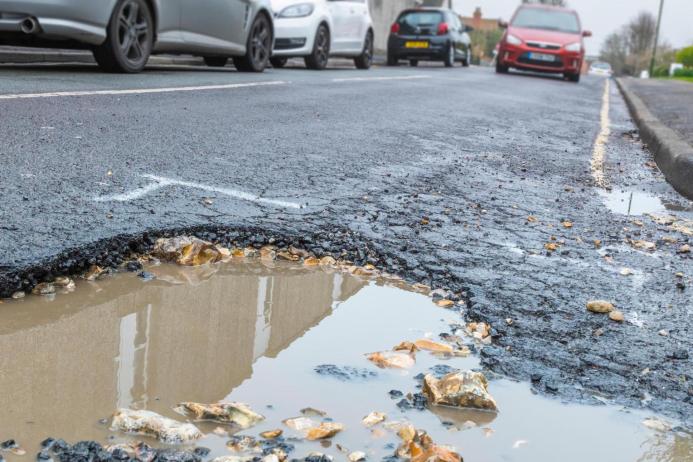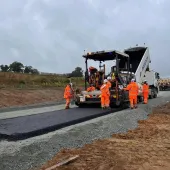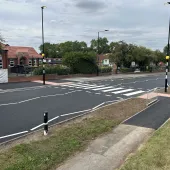DfT reveals roads being resurfaced with reallocated HS2 funding
AIA warns the additional money will not be enough to halt ongoing decline in road conditions
A NATIONWIDE programme of pothole repairs and road-resurfacing projects, made possible by the first tranche of £8.3 billion in reallocated High Speed 2 (HS2) funding, has been revealed – with the first roads already having been resurfaced.
Last November, the Government announced unprecedented investment to tackle badly surfaced roads and pothole-ridden streets. Councils have already been paid £150 million to get on with the work and deliver improvements, with another £150 million following in this financial year.
As a condition of this funding, and to make sure money is being spent on pothole repairs, local authorities are required to publish a two-year plan detailing exactly which local roads will benefit.
Today [10 April], the Department for Transport (DfT) revealed that 102 of the 119 authorities that received funding have responded to the department’s survey request to set out their plans. Among the regions pledging to resurface the most roads are the West Midlands (600,000m2) and East Midlands (350,000m2).
The DfT has made it clear that those local authorities that have failed to publish reports could see the withdrawal of future funding to resurface roads. And having submitted their first reports last month, councils will now also be required to submit quarterly reports from June 2024, announcing work which has taken place over the past three months.
The reporting requirement has not only shown the areas which are planned to benefit but also highlighted how emerging techniques and equipment are being used by local authorities up and down the country to tackle potholes. These include the use of durable carbon-neutral material in South Yorkshire, industry-leading ‘dragon patching’ equipment in Suffolk, innovative ‘Pothole Pro’ patching in Telford and Wrekin, and artificial intelligence being used for highway inspections in the East Riding of Yorkshire.
Transport Secretary, Mark Harper, said: ‘We’re on the side of drivers, which is why this government is getting on with delivering our plan to invest an additional £8.3 billion in the biggest-ever funding increase for local road improvements, made possible by reallocated HS2 funding.’
Commenting on the DfT announcement, Rick Green, chair of the Asphalt Industry Alliance (AIA), said: ‘The reallocated HS2 funding is a positive step, demonstrating the Government recognizes that maintaining local roads is about more than filling in potholes and that without this investment – which ramps up in the years ahead – the situation could be even worse.
‘We have supported the need for transparency of funding allocations and the requirement for local authorities to report on the local roads to benefit will hopefully ensure the money is not diverted.
‘But, as the Government itself says, this additional funding is only enough to resurface 5,000 miles of local roads over 11 years. This sounds like a lot, but it is just 2.7% of the network in England and London, where the funding is being made available, while our 2024 ALARM survey report highlights that there are already 31,000 miles of local roads reported to have less than five years’ life remaining.
‘It is clear that the additional money, while welcome, is not going to be enough to halt the ongoing decline in conditions. We need to get to the point where local authority highway engineers can plan and proactively carry out repairs and preventative works in the most timely and efficient way to the greatest benefit of all road users.’










